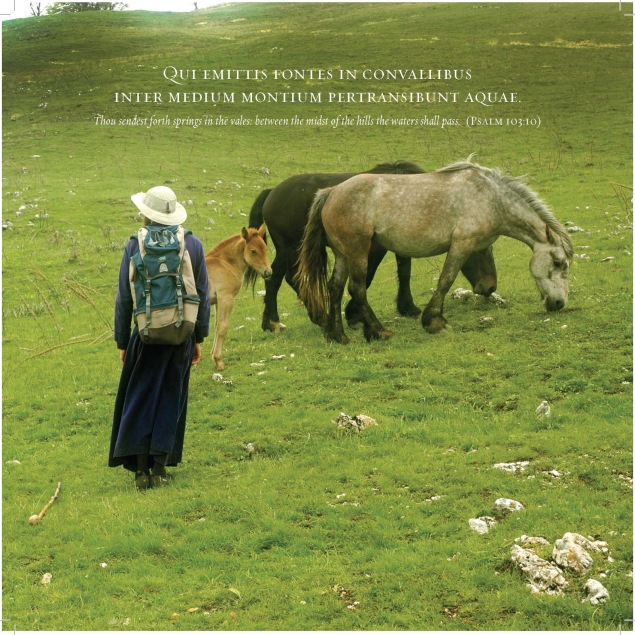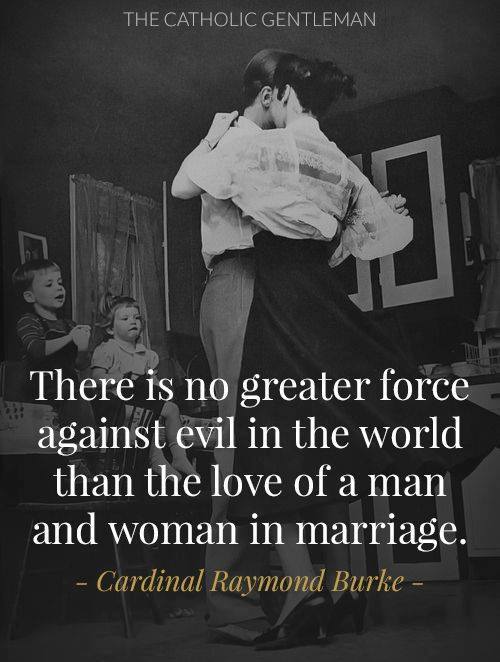Too often we rely on God as a genie, granting our wants and our desires. We pray to Him with the impression that “if we pray hard enough”, or “if we show Him just how much we want something”, He’ll grant us our wish. We pray for good grades, we pray for success in a public event; we pray for an award, or to look a certain way. We pray for a result in a sports match. But why? In essence, we’re telling God, “I need this to be happy.”
*–*
We are all guilty of this, I’m sure. At least I am. I do my fair share of prayers to God to help me get by: “My God, please help me perform as well as I am able to on this exam”, or “Lord, please don’t let me embarrass myself tomorrow as I try to give a presentation.” And I even try to disguise it sometimes, as if I could trick Him: “Lord, help me get this award so that I can glorify You with it.” And as I think back on these events in my life, I am sickened. I am sickened that I needed to disguise a personal success, and that my genuine interest was not the glorification of God through all my actions.
Sure, it’s perfectly good to use opportunities that God has given you to glorify Him, and to bring souls to His Holy Church. But God isn’t a genie. He doesn’t magically grant us wishes because we ask.
*–*
Don’t look to me as a model for how to pray. In fact, Our Lord spoke explicitly about how to pray, remember? He said in Matthew 6:
5 And when ye pray, you shall not be as the hypocrites, that love to stand and pray in the synagogues and corners of the streets, that they may be seen by men: Amen I say to you, they have received their reward.
6 But thou when thou shalt pray, enter into thy chamber, and having shut the door, pray to thy Father in secret: and thy Father who seeth in secret will repay thee.
7 And when you are praying, speak not much, as the heathens. For they think that in their much speaking they may be heard.
8 Be not you therefore like to them, for your Father knoweth what is needful for you, before you ask him.
9 Thus therefore shall you pray: Our Father who art in heaven, hallowed be thy name. 10 Thy kingdom come. Thy will be done on earth as it is in heaven. 11 Give us this day our supersubstantial bread. 12 And forgive us our debts, as we also forgive our debtors. 13 And lead us not into temptation. But deliver us from evil. Amen.
Mother Angelica called this, the Pater Noster, the perfect prayer… and for good reason. But notice with what Our Lord prefaces this prayer: “When you are praying, speak not much, as the heathens. for they think that in their much speaking they may be heard. Be not you therefore like to them, for your Father knoweth what is needful for you, before you ask him.”
This speaks right to the point of this post: Don’t use God as a genie. Don’t use Him as a get-out-of-jail-free card. God knows what we need, but to be fair it also doesn’t mean we shouldn’t ask. He wants us to have a relationship with Him, just as well.
*–*
Like I said, I am a flawed man. Probably more flawed than you, dear reader. But what do I pray for? I pray my rosary each day for three typical things:
- For the Holy Indulgences that are associated with the Rosary. If I am in a church building, I pray for the plenary indulgence. If I am at home or in the car, I pray for the partial indulgence.
- For the strength to fight off temptations. I pray each night for the virtue of chastity in dealing with lust; and I sometimes pray for the virtue of moderation in dealing with situations with alcohol, or for patience in dealing with situations where I might be angry. If I know how I might be tempted to sin, I pray for the self-control to combat that sin.
- For the souls of the faithful departed, especially my loved ones. At the end of each Rosary, I pray for the souls in purgatory, and I sometimes pray my entire Rosary for these souls as well.
Listen, there are many admirable things to pray for, and the point of this post isn’t to say that you’re praying wrong. The point of this post is to prompt an examination of your prayer life.
Are you praying for things that will please you, or things that will please God?
*–*
Here’s the rub: God created us free from Original Sin. Our first parents, Adam and Eve, cast original sin on us, and broke our ability to return the love to Him, our God. So God took on flesh, became the Word incarnate (=in flesh). God became man in a hypostatic union — which means that He was perfectly God and perfectly man at the exact same time. And why? Because it took a human, not God in man’s appearance but a man, to make repentance for our sin.
This is a beautiful bit of theology: God became one of us, to free us from the eternal death that we cast on ourselves. It took a man to die in atonement for our sins, but it took a God to resurrect Himself, to conquer death. Our Lord Jesus Christ was perfectly God and perfectly man at the same time — in a hypostatic union.
But the point of that is this: God gave us a first chance: through Adam and Eve. Then God died for us to give us the opportunity to go join Him in Heaven, provided we are baptized. And thennn God gave us the Sacrament of Penance in case we screw up and fall out of His favor by sinning. God gave us — not one… not two… but — three infinite gifts of eternal life.
*–*
Some get mad that God doesn’t answer their prayers with the answer they would like. Some lose faith because God doesn’t appear to be there. But do you ever stop and realize just what God did for us? What God does for us every day?
And I’m not talking the little gifts every day: the smile someone give you in the hallway, the compliment from a teacher, the beautiful sunset or moving music, the good hair day, or the great workout you had. Forget about all of those.
Suppose you had the worst life in the world… You’re still living… Think about that for a second. There’s a famous quote that goes: “If God stopped thinking about you for even a second, you would cease to exist.” Isn’t that true? Aren’t we here because God is thinking about us each and every second of every day?
And furthermore, God has already given us a gift that we can never repay: He has given us the opportunity to live eternally with Him in Heaven — to be privy to the Beatific Vision someday.
*–*
Would you ever feel as though a family of a friend who sacrificed his life so that you could live owes you anything? Probably not. You’d probably feel eternally indebted to them. Well what about God? He has sacrificed Himself not just so that we can live here on Earth but so that we can live forever. And yet we ask for things like the attention of a particular man or woman, or success on an examination.
God owes us nothing. And just about everyone knows that deep down, I’m sure of it. But sometimes we lose sight of it, especially in hard times, and we wonder “Where were you God?”
*–*
There’s a beautiful poem called Footsteps in the Sand, which many of you probably know. It goes:
One night I dreamed a dream.
As I was walking along the beach with my Lord.
Across the dark sky flashed scenes from my life.
For each scene, I noticed two sets of footprints in the sand,
One belonging to me and one to my Lord.
After the last scene of my life flashed before me,
I looked back at the footprints in the sand.
I noticed that at many times along the path of my life,
especially at the very lowest and saddest times,
there was only one set of footprints.
This really troubled me, so I asked the Lord about it.
“Lord, you said once I decided to follow you,
You’d walk with me all the way.
But I noticed that during the saddest and most troublesome times of my life,
there was only one set of footprints.
I don’t understand why, when I needed You the most, You would leave me.”
He whispered, “My precious child, I love you and will never leave you
Never, ever, during your trials and testings.
When you saw only one set of footprints,
It was then that I carried you.”
In some sense, this is absolutely correct. In fact, I cannot remember the context of why I read this the first time, but I was instantly brought to tears. Our God is Love, right? He loves us so much and desires so much for us to be with Him eternally that our actions away from Him hurt Him more than we could ever comprehend. That’s why He gave us Holy Mother Church, to give us everything we need to join Him someday.
But in a larger context, it doesn’t matter. He is with us all the time, but even if He was not, He still makes His sacrifice available to us at every Mass validly celebrated. He still became incarnate so that He could die for our sins.
*–*
In closing, I guess the point of this point is that God is not a genie, and He isn’t Santa Claus. He doesn’t sit in Heaven thinking: “Okay, well little Johnnie has been nice this year, so I’ll grant him whatever he prays the hardest for.” God desires our love for Him. That’s why He doesn’t just grant the Beatific Vision to everyone. He wants us to choose Him.
Perhaps moving forward, we can all be a little more grateful for what God has blessed us with already, and more conservative with what we ask for from God. Might we ask, instead of for gifts and relationships with humans and successes, for gifts of the Holy Ghost and relationships with God and charity. Might we ask for ways to be humbled instead of exalted, to forgive as we wish to be forgiven, and to love our neighbors because we love God, who desires their souls as much as He desires ours.
I’ll end with a favorite quote of mine from a passage of a prayer commonly called The Prayer of St. Francis of Assisi:
O Divine Master, grant that I may not so much seek to be consoled as to console, to be understood as to understand, to be loved as to love; for it is in giving that we receive, it is pardoning that we are pardoned, and it is in dying that we are born to eternal life.
*–*





